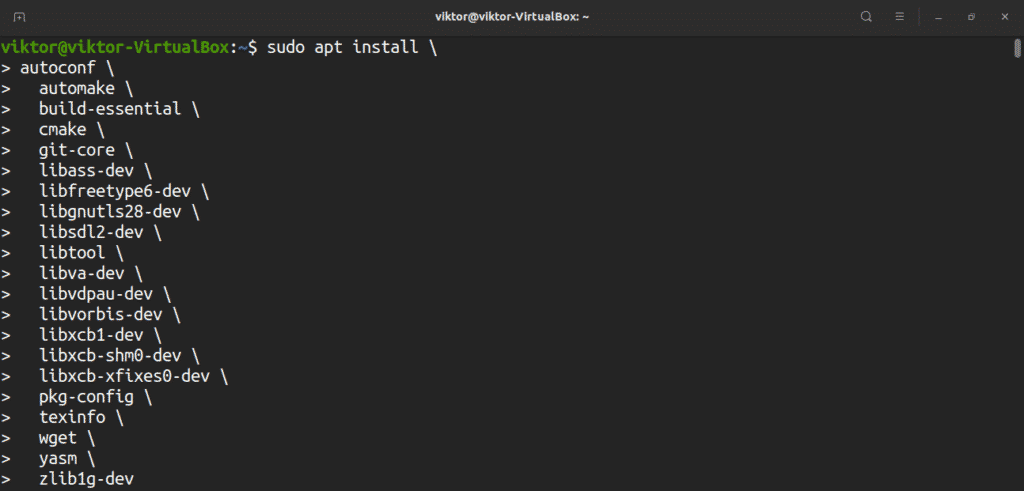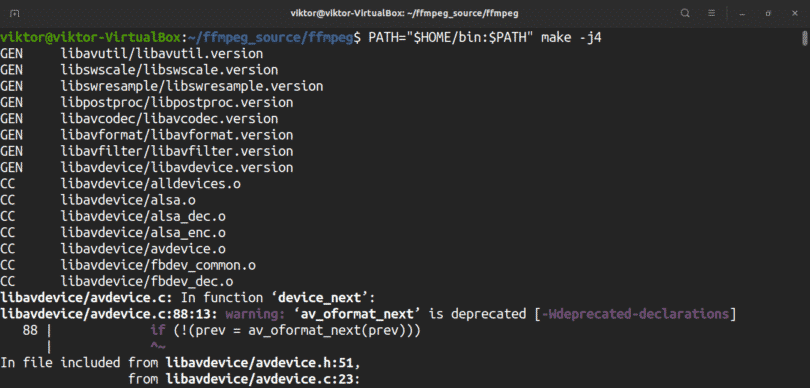

sudo apt -y install autoconf automake build-essential cmake doxygen git graphviz imagemagick libasound2-dev libass-dev libavcodec-dev libavdevice-dev libavfilter-dev libavformat-dev libavutil-dev libfreetype6-dev libgmp-dev libmp3lame-dev libopencore-amrnb-dev libopencore-amrwb-dev libopus-dev librtmp-dev libsdl2-dev libsdl2-image-dev libsdl2-mixer-dev libsdl2-net-dev libsdl2-ttf-dev libsnappy-dev libsoxr-dev libssh-dev libssl-dev libtool libv4l-dev libva-dev libvdpau-dev libvo-amrwbenc-dev libvorbis-dev libwebp-dev libx264-dev libx265-dev libxcb-shape0-dev libxcb-shm0-dev libxcb-xfixes0-dev libxcb1-dev libxml2-dev lzma-dev meson nasm pkg-config python3-dev python3-pip texinfo wget yasm zlib1g-dev libdrm-dev Compiling the Additional Libraries on the Raspberry Pi Run the following command to install all of the required packages to your Raspberry Pi.

Now we need to install the packages that we need to compile FFmpeg and its additional libraries.Īs there are quite a few, the installation process may take some time to complete. To update everything, all you need to do is run the following two commands.

Before we begin, you should first update both the package list and the installed packages.

we will be preparing your Raspberry Pi by installing all the required libraries for compiling FFmpeg.ġ. Installing the Packages Needed for FFmpeg If you are using a newer version of Raspbian and this tutorial fails to work, please leave a comment below. You can obtain Raspberry Pi OS Bullseye from our downloads page or upgrade to it from an older version of Raspbian. We tested this guide on a Raspberry Pi 4 running an up to date version of Raspberry Pi OS Bullseye. Here is a list of the equipment we recommend for this tutorial on compiling FFmpeg on your Raspberry Pi. Over the next few sections, we will show you how to install or compile FFmpeg on both a 32-bit and 64-bitt operating system. Using FFmpeg, you will be able to encode and decode a large variety of video and audio codecs. One of the best things about FFmpeg is that it can be compiled across a wide variety of devices, including the Raspberry Pi. These libraries are designed to deal with a variety of multimedia formats, whether that be an image, video, or audio format. FFmpeg is an open-source project that consists of a considerable range of libraries.


 0 kommentar(er)
0 kommentar(er)
